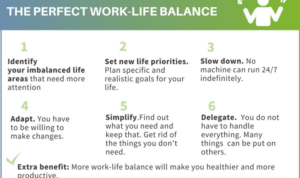Effective Time Management is like the ultimate life hack, helping you navigate the chaos of personal and professional life with finesse. Dive into this guide to discover the secrets of maximizing your time like a boss.
In a world where every minute counts, mastering time management can be your ticket to success.
Introduction to Effective Time Management
Effective time management is all about organizing and planning how to divide your time between specific activities. It involves setting goals, prioritizing tasks, and making sure to allocate enough time for each activity. This crucial skill helps individuals make the most out of their day, ensuring productivity and efficiency in both personal and professional life.
Importance of Effective Time Management
- Improves productivity: By managing time effectively, individuals can focus on important tasks and complete them efficiently, leading to increased productivity.
- Reduces stress: Proper time management helps in avoiding last-minute rushes and deadlines, reducing stress levels and promoting a sense of control.
- Enhances decision-making: With a clear schedule and priorities, individuals can make better decisions on how to allocate their time and resources.
- Improves work-life balance: Effective time management allows individuals to allocate time for work, family, hobbies, and personal development, leading to a healthier work-life balance.
Benefits of Effective Time Management

Effective time management comes with a plethora of advantages that can significantly impact both your personal and professional life. By organizing and prioritizing your tasks efficiently, you can experience reduced stress levels, improved productivity, and a better work-life balance.
Reduced Stress Levels
One of the key benefits of effective time management is the reduction of stress levels. When you have a clear plan in place and know exactly what needs to be done, you are less likely to feel overwhelmed by the demands of your responsibilities. By allocating time appropriately to each task and setting realistic deadlines, you can prevent last-minute rushes and the associated stress.
Improved Productivity
Effective time management enhances your productivity by allowing you to focus on high-priority tasks and minimize time wasted on unimportant activities. By setting specific goals and deadlines, you can work more efficiently and accomplish more in less time. This increased productivity not only benefits your work performance but also gives you more time for other activities.
Better Work-Life Balance
With good time management skills, you can achieve a better work-life balance by allocating time for work, personal activities, and relaxation. By setting boundaries and prioritizing self-care, you can prevent work from taking over your personal life and ensure that you have time for hobbies, family, and other interests. A balanced lifestyle contributes to overall well-being and prevents burnout.
Strategies for Effective Time Management
Effective time management is crucial for success in academics, work, and personal life. By utilizing the right strategies, you can maximize your productivity and minimize stress. Here are some tips to help you manage your time effectively:
1. Prioritize Tasks
One of the key strategies for effective time management is prioritizing tasks. Make a to-do list and identify the most important and urgent tasks that need to be completed first. By focusing on high-priority tasks, you can ensure that you are making progress on what truly matters.
2. Set SMART Goals
Setting SMART goals – Specific, Measurable, Achievable, Relevant, and Time-bound – is essential for better time management. When you have clear objectives in mind, you can structure your time more efficiently and stay motivated to accomplish your tasks.
3. Overcome Procrastination, Effective Time Management
Procrastination is a common obstacle to effective time management. To overcome procrastination, break tasks into smaller, manageable steps and tackle them one at a time. Set deadlines for yourself and eliminate distractions to stay focused on your work.
Tools and Techniques for Time Management: Effective Time Management

Effective time management requires the use of various tools and techniques to help individuals plan, prioritize, and track their tasks efficiently. By utilizing these resources, individuals can improve their productivity and achieve their goals in a more organized manner.
Various Tools for Time Management
- Time Management Apps: Apps like Trello, Todoist, and Asana help users create to-do lists, set deadlines, and track progress on tasks.
- Planners: Physical or digital planners allow individuals to schedule their activities, set goals, and allocate time for each task.
- Time Tracking Software: Tools like Toggl and RescueTime help users monitor how they spend their time, identify time-wasting activities, and make adjustments to improve efficiency.
The Pomodoro Technique
The Pomodoro Technique is a time management method developed by Francesco Cirillo in the late 1980s. It involves breaking work into intervals, typically 25 minutes long, separated by short breaks. This technique aims to improve focus and productivity by working in short, concentrated bursts followed by brief rest periods.
Benefits of Time Tracking
Time tracking is a valuable technique for managing time effectively as it allows individuals to:
- Identify Time Wasters: By tracking how time is spent, individuals can pinpoint activities that consume excessive time without adding value.
- Set Realistic Goals: Tracking time helps individuals understand how long tasks actually take, enabling them to set more achievable goals and deadlines.
- Improve Efficiency: Analyzing time data can reveal patterns of productivity and inefficiency, allowing for adjustments to be made for better time management.

